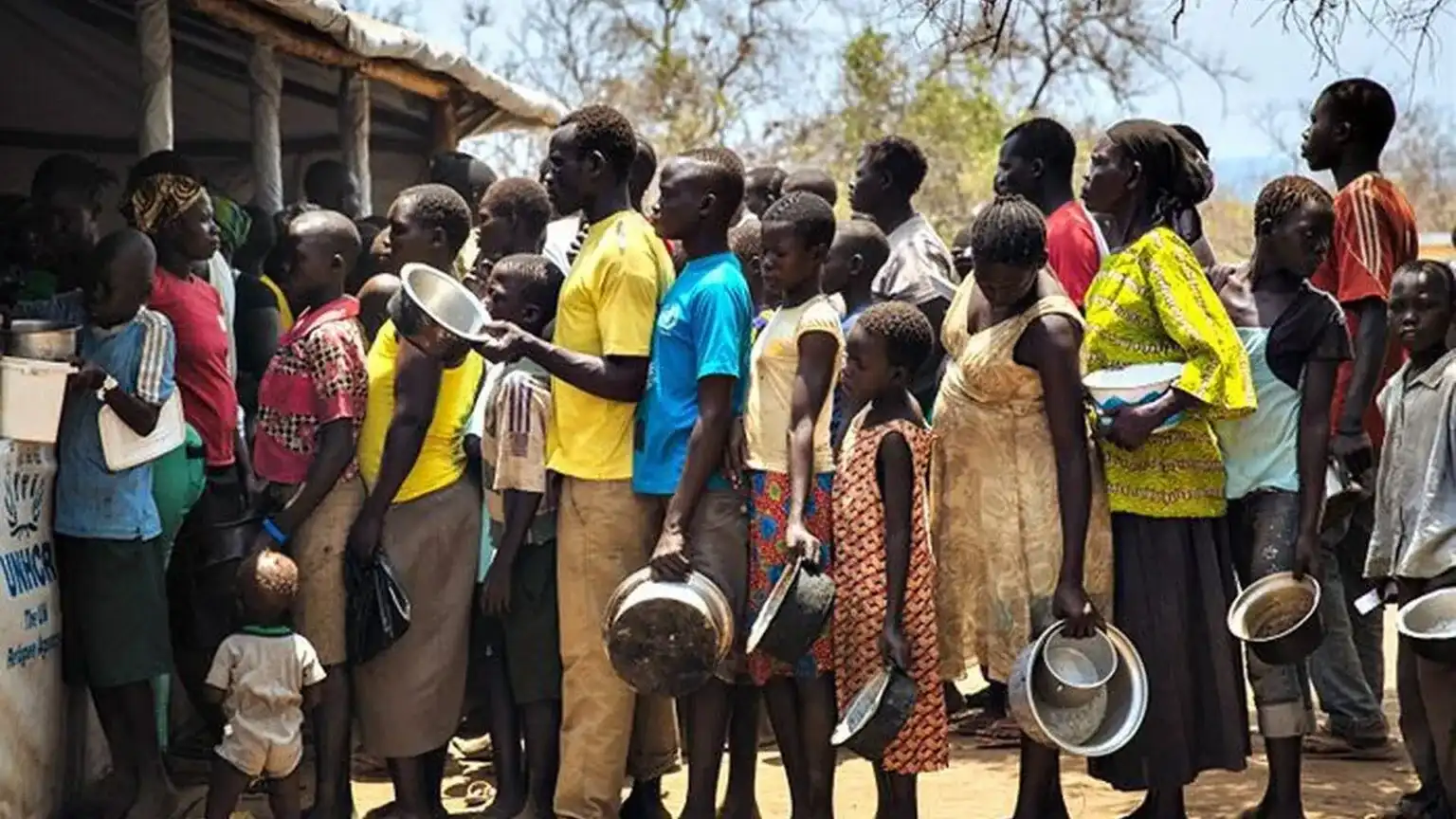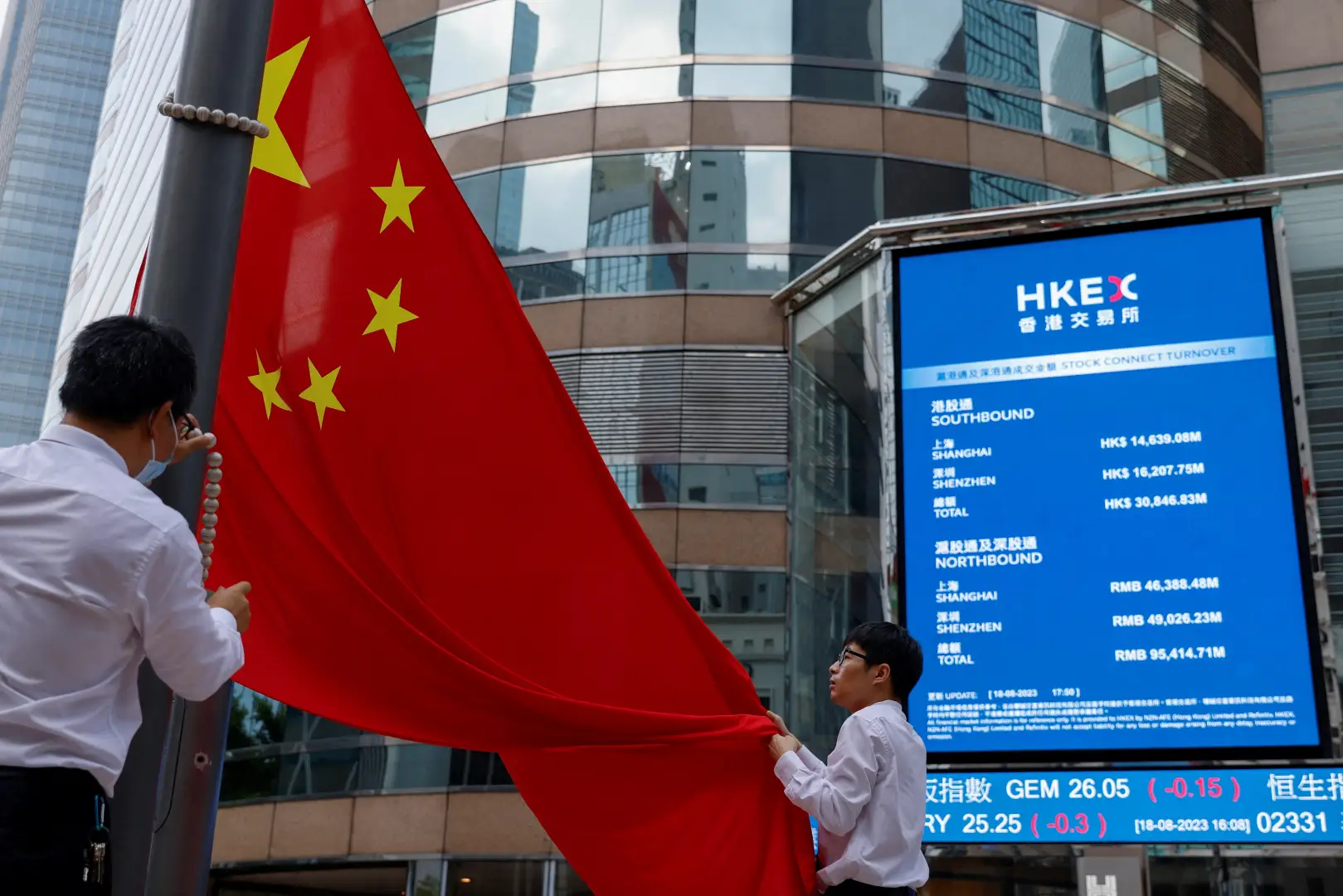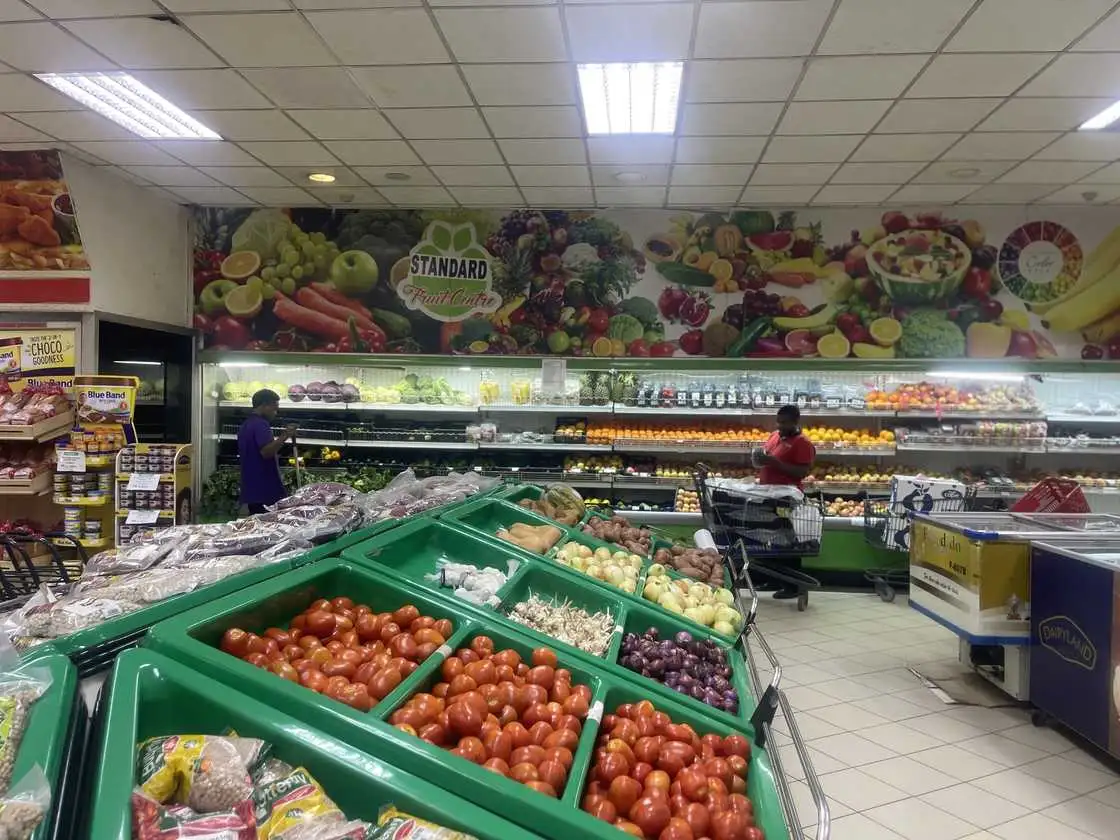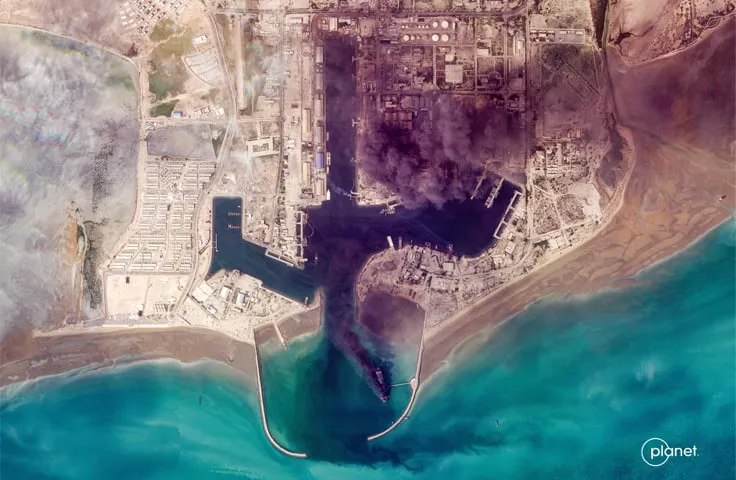Despite Nigeria’s recent policy overhauls, millions remain trapped in poverty and chronic hunger. Following its 2025 Article IV Staff Mission, the International Monetary Fund (IMF) has lauded Abuja’s steps to stabilize public finances and unify foreign‑exchange markets—but sounded a stark warning: these gains have yet to reach the most vulnerable, as poverty and food insecurity linger at alarmingly high levels.
IMF Mission Findings: A Mixed Assessment
An IMF delegation led by Axel Schimmelpfennig, IMF Mission Chief for Nigeria, toured Lagos and Abuja from April 2–15, engaging with Finance Minister Wale Edun, Central Bank Governor Yemi Cardoso, senior officials, labor unions, and civil society . In his end‑of‑mission statement, Mr. Schimmelpfennig welcomed Nigeria’s reforms—halting central bank financing of the fiscal deficit, eliminating costly fuel subsidies, and improving FX market functioning—but stressed that the social impact remains uneven:
“These important steps have placed the Nigerian economy in a stronger position to navigate external shocks. However, poverty and food insecurity remain high, and the outlook is marked by significant uncertainty…” .
The Fund urged policies that simultaneously contain inflation, deepen resilience buffers, and foster an environment conducive to private‑sector‑led growth.
Macroeconomic Reforms: Progress and Pitfalls
Since mid‑2023, President Bola Tinubu’s administration has pursued “shock‑therapy” measures to correct long‑standing distortions. Key actions include:
- Fuel Subsidy Removal: Terminated in May 2023, projected to save US $7.5 billion annually, enabling reallocation toward infrastructure and social spending Nairametrics.
- Cessation of Deficit Financing: Central Bank ceased monetizing government debt, curbing inflationary pressures and restoring monetary policy credibility .
- FX Market Unification: Introduction of the Investors & Exporters FX Window has narrowed parallel‑market spreads and improved liquidity across market segments.
These moves helped stabilize Nigeria’s exchange rate and brought record foreign inflows, yet they also triggered a near‑tripling of consumer prices, pushing headline inflation to 24.23 percent in March 2025—the highest since February, driven largely by food price spikes Reuters.
Growth Gains Fall Short
Nigeria’s real GDP expanded 3.46 percent year‑on‑year in Q3 2024, buoyed by a resilient services sector and modest gains in oil output (1.47 million barrels per day) Reuters. However, growth remains below the Tinubu administration’s 6 percent target. The IMF projects 2.9 percent growth for 2024 and 3.2 percent for 2025, reflecting a global slowdown and domestic headwinds ReutersIMF. Meanwhile, elevated policy rates—now at 27.5 percent—and yield‑curve inversion signal caution among investors and corporations alike.
Poverty in Nigeria: A Deepening Crisis
Despite being Africa’s largest economy, Nigeria has one of the world’s highest absolute poverty tallies. According to the World Bank, 38.9 percent of Nigerians—roughly 87 million people—live below the national poverty line in 2023 World Bank Group. A separate Bank report finds that 56 percent of the population, or 129 million, now subsist on incomes too low to meet basic needs The Africa Report.
Poverty is markedly unequal:
- Rural vs. Urban: Over 45 percent of rural Nigerians live in poverty, compared to 28 percent in urban centers.
- Regional Disparities: Northern states such as Kano, Borno, and Sokoto record poverty rates exceeding 70 percent.
Key drivers include limited job creation—just 2 percent annual labor‑force growth capping absorption capacity—and inflation surges outpacing wage increases, forcing many into informal‑sector survival strategies.
Food Insecurity: Millions on the Brink
The IMF’s warning on hunger echoes UN data depicting a mounting crisis. The World Food Programme (WFP) estimates that 26.5 million Nigerians faced acute hunger during the June–August 2024 lean season—a 42 percent rise from the end of 2023 UN World Food Programme (WFP). With record inflation, climate shocks, and ongoing insurgencies, WFP projects 33 million people will be food insecure by mid‑2025, up from 25 million today UN World Food Programme (WFP).
The most affected are in conflict‑hit Borno, Adamawa, and Yobe—regions where over 4.4 million people remain displaced and reliant on food aid. Flooding in 29 states, driven by dam breaches and torrential rains, destroyed 1.5 million hectares of cropland in 2024, compounding rural vulnerabilities Reuters.
IMF Policy Recommendations
To translate macro‑economic gains into tangible social outcomes, the IMF recommended:
- Neutral Fiscal Stance: Adjust the 2025 budget to reflect lower oil‑revenue projections while avoiding procyclicality, thus supporting the central bank’s disinflation goals .
- Reallocate Subsidy Savings: Channel proceeds from subsidy removal into critical capital investments—roads, power, health facilities—and expand World Bank‑backed cash transfers to vulnerable households.
- Tight, Data‑Dependent Monetary Policy: Maintain high policy rates until a clear disinflation path below 15 percent is visible, helping anchor expectations .
- Enhance Social Protection: Broaden and accelerate conditional cash transfers to cover all food‑insecure zones, including Borno’s IDP camps and hard‑to‑reach rural communities.
- Foster Private Sector‑Led Growth: Remove bottlenecks—power shortages, logistics costs—and strengthen small business finance to create jobs.
“These measures can help ensure reforms benefit all Nigerians,” Mr. Schimmelpfennig emphasized, calling for swift implementation to “anchor growth and stability.” .
Government & Stakeholder Responses
Finance Minister Wale Edun affirmed the government’s commitment to a neutral fiscal stance, pledging to protect “growth‑enhancing investments” while “responding flexibly” to oil‑price shocks. CBN Governor Yemi Cardoso reiterated the bank’s data‑driven approach, asserting that “robust buffers” and market‑based FX policies will underpin economic stability.
In February 2024, the government resumed cash transfers to 12 million vulnerable households, disbursing ₦25,000 monthly to help offset higher living costs—a pace expected to accelerate under World Bank assistance Reuters. Meanwhile, the Ministry of Agriculture has launched subsidized fertilizer programs and small‑holder irrigation schemes to boost rural incomes and food production.
Human Stories: Lives on the Edge
- Amina Suleiman, a mother of four in Maiduguri, now relies on UN food rations delivered to her displacement camp.
- Chief Musa Bello, a subsistence farmer in Adamawa, saw his maize yield halved by floods; he joined a WFP‑led cash‑for‑work scheme to rebuild embankments around his fields.
- Chidinma Okeke, a market trader in Lagos, struggles to cover rent after her purchasing power was eroded by rising food and transport costs.
Their experiences underscore that without a halt to persistent poverty and hunger, Nigeria’s social fabric—and long‑term growth prospects—remain at risk.
Outlook: Navigating Uncertainty
As global commodity markets remain choppy and geopolitical tensions simmer, Nigeria’s economy faces a “narrow corridor” of risks, the IMF cautioned. A prolonged oil‑price slump below US $70 per barrel could widen deficits and erode FX reserves, while further inflationary shocks threaten to push CPI above 30 percent later this year.
Yet there are bright spots: remittance inflows reached US $30 billion in 2024—second‑highest on the continent—providing a steady cushion for household spending. The digital‑finance boom—with over 100 million mobile money accounts—offers channels to scale social‑safety nets and financial inclusion. And Nigeria’s 3.2 percent GDP growth forecast for 2025 holds out the promise of gradual recovery if reforms are deepened and delivery improved IMFReuters.
Conclusion
The IMF’s Article IV assessment paints a clear picture: Nigeria has embarked on bold reforms, but the social dividends have yet to materialize for the majority. With 87 to 129 million Nigerians living in poverty and up to 33 million facing acute hunger, the stakes could not be higher. Delivering on the promise of inclusive growth will require not only prudent fiscal and monetary management but also unwavering focus on the poorest households, robust social protection, and an enabling environment for private‑sector job creation. In the words of Mr. Schimmelpfennig, “Economic stability must go hand‑in‑hand with social progress”—a challenge Nigeria must now meet head‑on to secure a more equitable future.
Ready to take your career to the next level? Join our dynamic courses: ACCA, HESI A2, ATI TEAS 7 , HESI EXIT , NCLEX – RN and NCLEX – PN, Financial Literacy!🌟 Dive into a world of opportunities and empower yourself for success. Explore more at Serrari Ed and start your exciting journey today! ✨
photo source: Google
By: Montel Kamau
Serrari Financial Analyst
22nd April, 2025
Article, Financial and News Disclaimer
The Value of a Financial Advisor
While this article offers valuable insights, it is essential to recognize that personal finance can be highly complex and unique to each individual. A financial advisor provides professional expertise and personalized guidance to help you make well-informed decisions tailored to your specific circumstances and goals.
Beyond offering knowledge, a financial advisor serves as a trusted partner to help you stay disciplined, avoid common pitfalls, and remain focused on your long-term objectives. Their perspective and experience can complement your own efforts, enhancing your financial well-being and ensuring a more confident approach to managing your finances.
Disclaimer: This article is for informational purposes only and does not constitute financial advice. Readers are encouraged to consult a licensed financial advisor to obtain guidance specific to their financial situation.
Article and News Disclaimer
The information provided on www.serrarigroup.com is for general informational purposes only. While we strive to keep the information up to date and accurate, we make no representations or warranties of any kind, express or implied, about the completeness, accuracy, reliability, suitability, or availability with respect to the website or the information, products, services, or related graphics contained on the website for any purpose. Any reliance you place on such information is therefore strictly at your own risk.
www.serrarigroup.com is not responsible for any errors or omissions, or for the results obtained from the use of this information. All information on the website is provided on an as-is basis, with no guarantee of completeness, accuracy, timeliness, or of the results obtained from the use of this information, and without warranty of any kind, express or implied, including but not limited to warranties of performance, merchantability, and fitness for a particular purpose.
In no event will www.serrarigroup.com be liable to you or anyone else for any decision made or action taken in reliance on the information provided on the website or for any consequential, special, or similar damages, even if advised of the possibility of such damages.
The articles, news, and information presented on www.serrarigroup.com reflect the opinions of the respective authors and contributors and do not necessarily represent the views of the website or its management. Any views or opinions expressed are solely those of the individual authors and do not represent the website's views or opinions as a whole.
The content on www.serrarigroup.com may include links to external websites, which are provided for convenience and informational purposes only. We have no control over the nature, content, and availability of those sites. The inclusion of any links does not necessarily imply a recommendation or endorsement of the views expressed within them.
Every effort is made to keep the website up and running smoothly. However, www.serrarigroup.com takes no responsibility for, and will not be liable for, the website being temporarily unavailable due to technical issues beyond our control.
Please note that laws, regulations, and information can change rapidly, and we advise you to conduct further research and seek professional advice when necessary.
By using www.serrarigroup.com, you agree to this disclaimer and its terms. If you do not agree with this disclaimer, please do not use the website.
www.serrarigroup.com, reserves the right to update, modify, or remove any part of this disclaimer without prior notice. It is your responsibility to review this disclaimer periodically for changes.
Serrari Group 2025
















